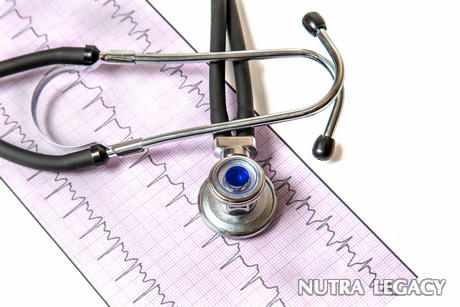What is a Heart Arrhythmia?

- A heart arrhythmia is an irregular heartbeat. Usually about 850,000 people end up in hospitals all over the US for this reason
- It’s caused by the electrical impulses that control the heart which can make it faster or slower than usual
- Causes include: heart disease, prescription and herbal medication and stress
- You’re at a higher risk if you’ve had a heart attack
- Severe arrhythmia can increase your risk of stroke or congestive heart failure
If you’ve been diagnosed with arrhythmia, your probably have many questions. The first of those questions is probably: what is an arrhythmia? It’s natural to want information on something affecting your health, especially your heart health. While talking to your physician is important, the information below can help give you some basic information.
Arrhythmia Basics
If you want an easy answer to the question of what is an arrhythmia, that answer would be an irregular heartbeat. This can be felt in the body by a fluttering feeling in your chest or a physical sensation that your heart literally “skipped a beat.” These feelings are not uncommon. Most people will experience these sensations at some point during their lives without any medical concerns. However, not all cases of arrhythmia are so benign. Annually, about 850,000 people end up in hospitals all over the United States as a result of irregular heart beats.
Causes of Arrhythmia
Whenever you have an irregular heartbeat, the problem stems from the electrical impulses that control the heart muscle. These impulses can sometimes cause your heartbeat to be faster or slower than normal.
The bigger question is what causes these impulses not to fire correctly. There are dozens of possible answers. If you’re normally healthy, overdoing the caffeine or taking dangerous drugs can cause the problem. You can also get arrhythmias if you have health conditions, such as heart disease, hypertension, or diabetes. Some types of prescription, over-the-counter, and herbal medications can also cause an irregular heartbeat. Stress, electrolyte imbalances, and electrical shocks are also known to have this impact as well.
If you’ve had a heart attack or heart surgery, your risks of developing an arrhythmia are greater thanks to the build up of scar tissue in the heart. Reduced blood flow to the heart because of a blockage and heart deformities are other possible causes of arrhythmias.
Potential Risks of Arrhythmias
Now that you have an answer to your question about what is an arrhythmia, you’re probably wondering if you need to be worried about your health. There is no easy answer to that question because your physician will need to determine the cause of your irregular heartbeats first. While many of these problems are not serious or even cause for concern, frequent or severe arrhythmias can increase your risk of stroke or congestive heart failure.
When you experience an irregular heartbeat, pay attention to what you are doing at the time. If you’ve had a lot of caffeine or alcohol, chances are your body may just be more sensitive to these chemicals and that’s why they are affecting those electrical impulses. If you notice that you are having frequent bouts of irregular heartbeats, you should definitely talk to your physician so he or she can determine the root cause.
Treatments
If you have an occasional arrhythmia but are otherwise healthy, the physician may suggest some lifestyle changes but that’s about it. With ongoing cases of irregular heartbeats, medications can be prescribed to help keep the beating more regular. In some severe cases, pacemakers or other devices must be surgically installed in the body to regulate the heartbeat.
Check with your doctor before taking any supplements, especially if you already have a heart arrhythmia. Some supplements you could consider are Zincechinacea Lozenges, to relieve stress, and CO Q10 100mg to support cardiovascular health.
The information supplied in this article is not to be considered as medical advice and is for educational purposes only.
|
One Response to “What is a Heart Arrhythmia?” | ||||||||||||||





 27 Nov 2008
27 Nov 2008
I have heart arrhythmia, but I stil can't seem to pinpoint the cause of it. I lead a healthy lifestyle, I don't smoke or drink coffee, I'm not taking any herbal supplements, and I don't enounter too many stressful situations. I'm 35 and have not had prior heart attacks. What else can be causing it? Anything that has to do with the heart usually worries me, so any answer would be helpful.February 3rd, 2011 at 5:16 am